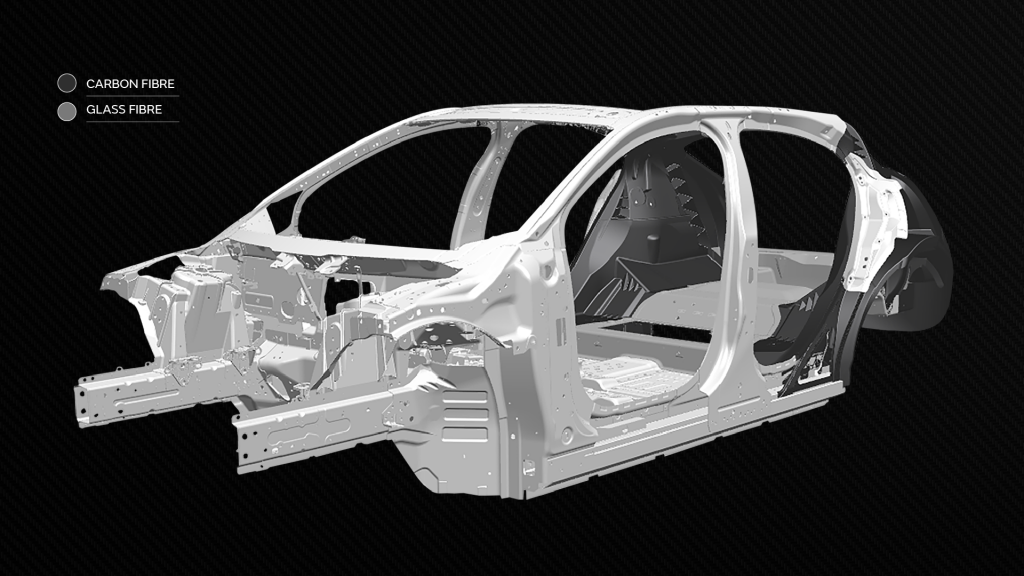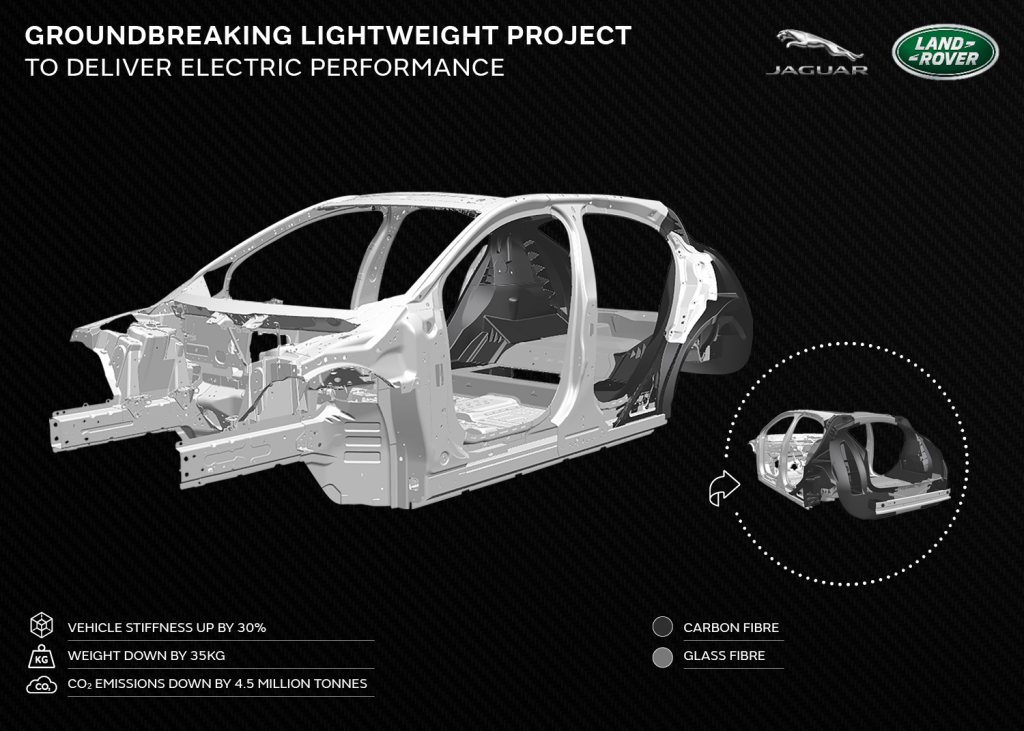

Under the Tucana Project, that aims to make the UK a world leader in low carbon technology, Jaguar Land Rover is developing an advanced lightweight composite platform that will enable the future electric vehicles to deliver more range, agility and performance. The Tucana Project will not only help accelerate mainstream use of electric vehicles but also prevent 4.5 million tonnes of CO2 emissions between 2023 and 2032 by reducing both tailpipe emissions as well as reduced energy consumption, by making lighter electric vehicles.
The four-year research programme will enable Jaguar Land Rover in the development of a lightweight platform but also powertrain components with the intention to replace Aluminium and steel by composite that are able to wield the high torque stresses generated by powerful batteries. The new composite platform is not only lighter by 35 kgs but also 30% stiffer that enables it to further refine the crash safety structure by the use of Tailored Composites targeted to reinforce the weak spots by using Carbon Fibre structures.
Reducing the weight of the platform enables Jaguar Land Rover to fit larger sized batteries that enable a longer range without impacting carbon emissions. The brand has also announced that a fleet of Tucana prototype vehicle for testing by 2022 and the prototype vehicles will have a great advantage in terms of vehicle weight.
Jaguar Land Rover has associated with world-leading academics and industry partners which includes Warwick Manufacturing Group (WMG), The Centre for Modelling & Simulation (CFMS), Broetje-Automation UK, Expert Tooling & Automation, Toray International UK and CCP Gransden.
Jaguar has already started to offer electrified powertrains, showing the brands commitment towards safer and healthier societies through the new advanced and innovative technology. The brand has already achieved the electrification of its PACE family which includes the P300e plug-in hybrid powertrain on the Jaguar E-PACE, P400e for Jaguar F-PACE and the new Range Rover Velar as well as the fully electric Jaguar I-PACE.

